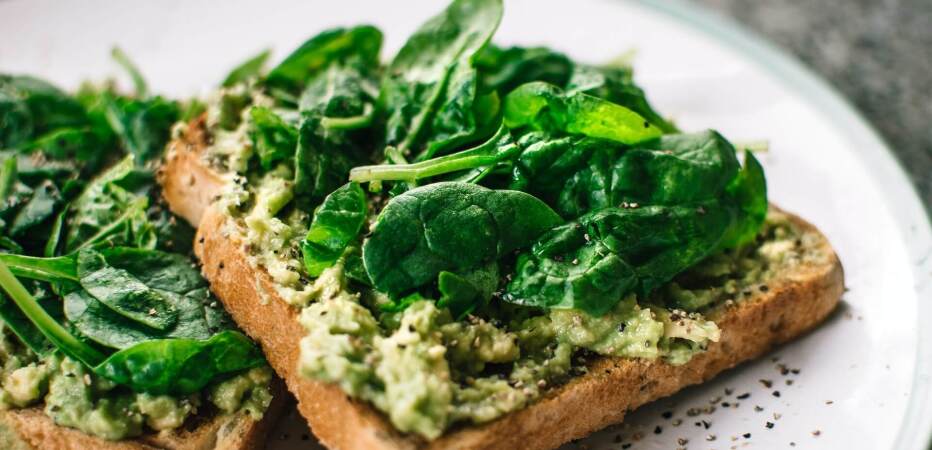What foods make up a Vegan diet?
Vegan diets consist of plant-derived foods: fruits, vegetables, soy, legumes, nuts and nut butters (tahini, peanut butter, etc.), plant-based dairy alternatives, fermented plant foods, and whole grains.
Vegan diets do not include animal foods such as eggs, dairy, meat, poultry or seafood. They also lack animal-derived foods, such as honey (made from bees) and lesser known animal ingredients such as whey, casein, lactose, egg white albumin, gelatin and omega 3 fatty acids from fish.
For a healthy vegan diet prefer:
- Consume at least 5 servings of a variety of fruits and vegetables each day, aiming for a variety of different fruits and vegetables throughout the week.
- Incorporate high quality plant proteins such as: legumes, soy products, seitan.
- All your meals should contain carbohydrates, especially complex ones, such as potatoes, whole grain bread and pasta, wild rice.
- Eat at least 30 different plant-based foods throughout the week, as the latest scientific evidence indicates. These include different fruits, vegetables, nuts, seeds, legumes & whole grain products.
- Choose fortified dairy alternatives such as soy drinks and soy, coconut or almond yogurts (which are lower in saturated fat and lower in simple sugars).
- Try nuts and seeds, rich in omega-3 fatty acids (flaxseed, chia seeds, hulled hemp seeds, walnuts).
- Consume fortified foods or supplements that contain nutrients that are harder to obtain through a vegan diet, such as vitamin D3, vitamin B12, iodine, selenium, calcium and iron.
- Drink plenty of fluids (6 to 8 glasses a day).
The health benefits of a vegan diet:
- Lower body mass index. Vegan diets seem to be very effective in helping people to naturally reduce the number of calories they consume resulting in weight loss.
- Lower total cholesterol & LDL cholesterol (or "bad" cholesterol).
- Lower blood glucose levels.
- 15% reduction in overall cancer risk.
Important Nutrients to focus on, when following a vegan diet to avoid deficiencies:
- Vitamin B12: it is important for metabolism, heart, nerve and muscle health and is mainly found in animal products. Those following a vegan diet should choose foods enriched with B12, such as nutritional yeast. However, supplementation is usually mandatory, when it comes to B12.
- Iron: is a vital component of metabolism and heart health. It is mainly found in animal foods. Although fortified whole grains, beans, lentils, lentils, spinach and other plant foods contain iron, they are in the form of non-heme iron which is not as bioavailable as the heme iron found in animal foods, resulting in little absorption rate, ranging between 2-10%.
- Omega-3 fatty acids: is a type of polyunsaturated fat that appears to support cardiovascular health. The three most common types we consume are alpha-linolenic acid (ALA), eicosapentaenoic acid (EPA) and docosahexaenoic acid (DHA). Foods rich in omega-3s are flaxseed, chia seeds and hemp seeds.
- Calcium: The Daily Reference Intake (RDI) is 1,000 mg per day for adults. This reaches 1,200 mg for people over 50 years of age and 1,300 for children aged 4-18 years. In the vegan diet, calcium-rich foods include soy foods, almonds, seeds and fortified plant-based milk substitutes.
Well-planned vegan diets can meet nutritional needs at every stage of a person's life. Holland & Barrett, with 150 years of experience, has created a number of nature-based supplements to correct any nutritional deficiencies that may arise and a very wide range of plant-based foods that can be incorporated into a balanced vegan diet.
Scientific references
Dinu M, Abbate R, Gensini GF, Casini A, Sofi F. Vegetarian, vegan diets and multiple health outcomes: A systematic review with meta-analysis of observational studies. Crit Rev Food Sci Nutr. 2017 Nov 22;57(17):3640-3649.
Dybvik JS, Svendsen M, Aune D. Vegetarian and vegan diets and the risk of cardiovascular disease, ischemic heart disease and stroke: a systematic review and meta-analysis of prospective cohort studies. Eur J Nutr. 2023 Feb;62(1):51-69.
Craig WJ. Health effects of vegan diets. Am J Clin Nutr. 2009 May;89(5)
Moore WJ, McGrievy ME, Turner-McGrievy GM. Dietary adherence and acceptability of five different diets, including vegan and vegetarian diets, for weight loss: The New DIETs study. Eat Behav. 2015 Dec;19:33-8.






























